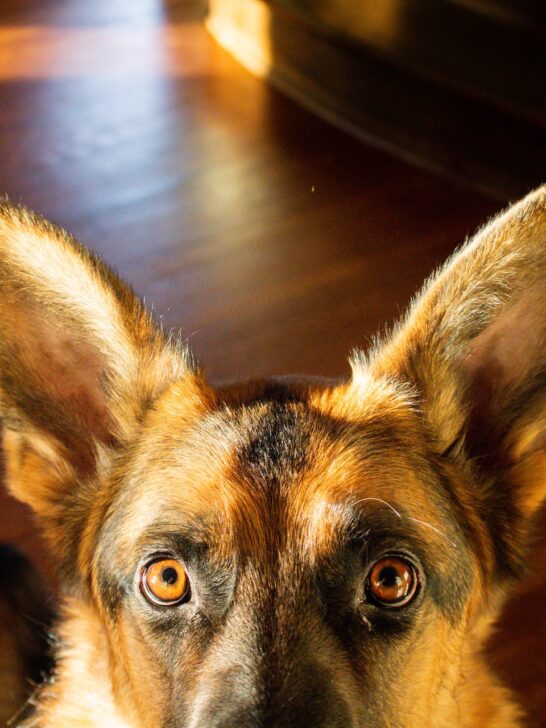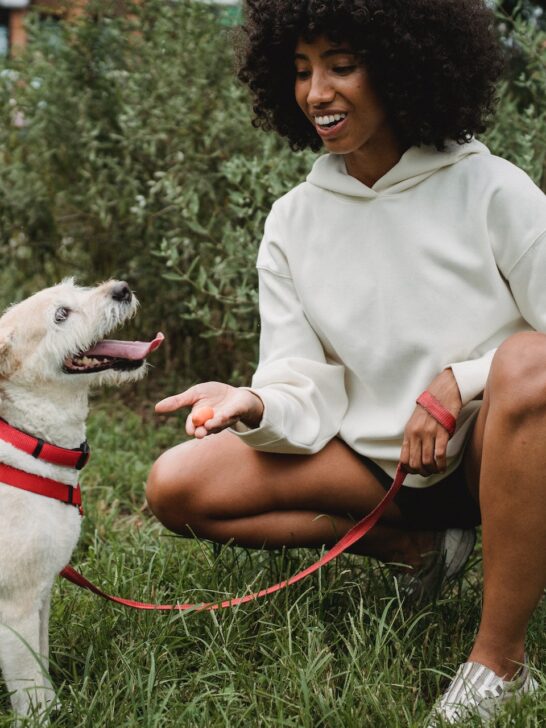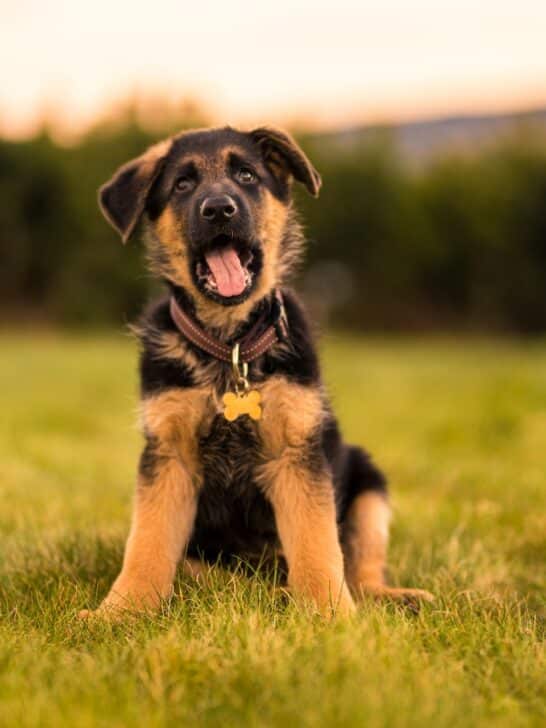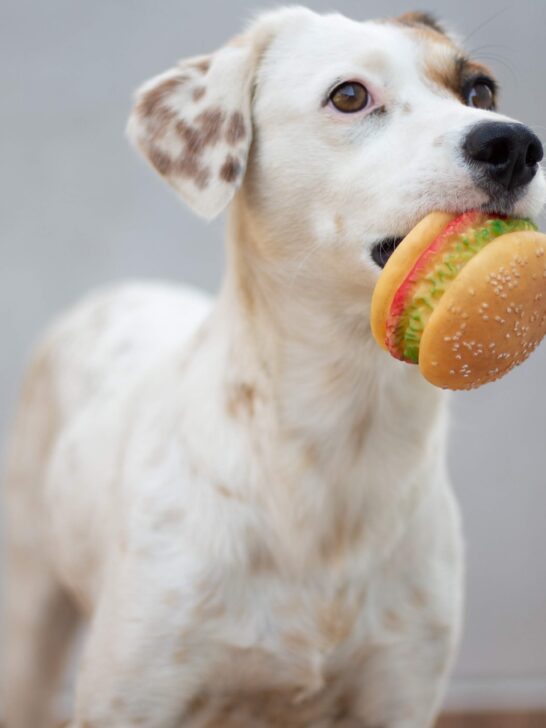Everything You Need To Know About Whether A Father Dog Can Have Puppies With His Daughter
Your best friend has a litter of cute and cuddly puppies, and they all have their perfections! You want to try and keep these perfections with the next generations but you’re worried.
Is there a risk? Will the puppies have genetic defects? You’re struggling to get a clear picture.
It’s now the time to find out if it works. Can they and should they breed?
Can Dad Dogs Breed With Their Daughters?
Well, if you’re asking if it is possible… yes. However, much like many other species, there can be a variety of problems with this.
To give you a well rounded answer, we’ll first explore the potential benefits.
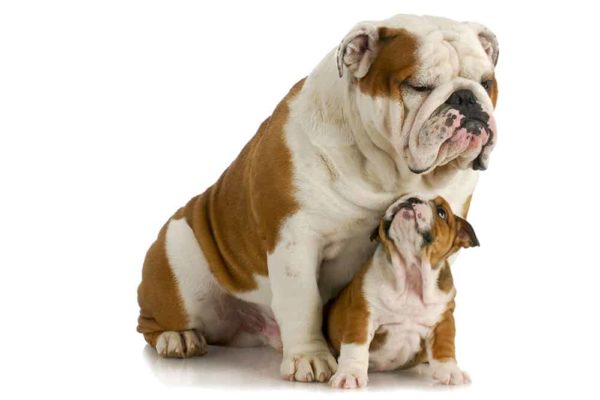
Could It Be Good?
Inbreeding or sometimes referred to as line-breeding is a method that aims to hone in on a dog’s good points (but let’s face it, they’re all good!).
For example, your dog might have a particular shape of nose or a unique color and even a special ability!
A common reason for this method being undertaken is working in a particular field such as dog shows, hunters or as a breeder.
It may also be a tactic to prevent bad traits in the next of kin such as being prone to an illness.
Seemingly, these points are the only ones of benefit. The negative aspects far outweigh any potential benefit.
It is crucial to understand though, there is a correct way to line-breed and it is vastly different to the incorrect way. For example, it is obvious that dogs long ago were a product of inbreeding.
We also know that cocker spaniels and field spaniels are of the same ancestry.
Historically, dogs were bred by us and developed by our influence. After we met with their very early relatives, the friendship grew.
Dogs would alert their owners of threats such as strangers or animals nearby on the homestead.
Fast forward to the 1800s – records were kept of certain litters and blood lines, to try and breed dogs to do certain tasks (such as hunting, herding sheep and tracking.)
This was the early stages of what we now recognize as selective breeding.
Breeding dogs for these tasks has questionable ethics in of itself, but without it – we would not have certain breeds of dogs that we know and love today!
But of course, as time has progressed – so too has the gene pool.
The expansion has meant the limitation of potential close-relative inbreeding, along with the potential of the genetic illnesses and abnormalities that result from it.
The supposed correct way of inbreeding dogs is to do a test known as a coefficient test. The resulting number will indicate how closely related these dogs are.
Anything over 25% is considered a close relative and inbreeding should be avoided due to the risks.

Reasons You Should Avoid Inbreeding Daddy And Daughter
Many studies have indicated that this kind of breeding with a dog’s very close relatives will reduce the canine’s purebred gene pool.
There is a very real risk of the offspring being genetically defective and falling ill.
As a result, the genetic pool becomes increasingly limited. In usual breeding, the pool would be grown with new potential good traits and new uniquity to the pups.
It has also been shown that this type of breeding has assisted in the increase of the dogs being infertile. This is the polar opposite of what the supposed benefit was meant to be.
Even if the dog does manage to produce puppies, there is a high chance that they will be born with a huge level of ill health or sadly, pass away incredibly young.
There is also the issue of the puppies having mental difficulties. Many line-bred dogs have been noted with abnormal aggression and strange behaviors.
Some appear more frightened and anxious, while others show signs of a severe lack of intellect.
Another counterpoint to the potential benefit are the looks of the young. While in theory the “good” traits of the dog are meant to be passed on, this also will apply to the “bad” traits.
This could be within its immunology, general health and even its looks.
Some of these litters have been born malformed with a variety of abnormalities and even been born with disease and cancers.

So, Should I Breed A Dad With His Daughter?
There are two aspects of this. Either way you look at it, most experts have agreed that NO you should not. The one aspect is the health of the dog and the next is the morality of it.
Health
We’ve looked at a few potential health problems with inbreeding dogs. It is a fact that most health issues that a dog may have are resulting from its genes (recessive.)
- Diseases
- Abnormalities
- Mental health problems (aggression, depression, anxiety)
- Young mortality
Morality
There is of course the ethical conundrum.
- A lot of breeders will do so for the financial benefit with no real care to the welfare of the dog. To some extent, this is also true for dog-shows.
- Inbreeding will allow the potential of defective genes being passed on through more generations. These can harm many dogs, meaning they have a poor quality of life. This will apply to a large number of potential pups.
- It is worsening the overpopulation of dogs.
- It supports the buying/selling operation of owning a dog, when many go abandoned or in dog shelters.
To Sum Up
As we’ve said. Although the answer is yes – a Dad can indeed breed with its daughter, they really shouldn’t.
If you love your canine companions, it is better to allow them to find their own puppy partners.
It’s their choice. With all the associated problems with inbreeding, you’re far better off avoiding it than gambling.
In our history, we might have had a reason to selectively breed dogs, but in today’s society it seems unnecessary.
Those that benefit from inbreeding are usually financially involved, so before you rush out to them – think. Speak with an expert.

























